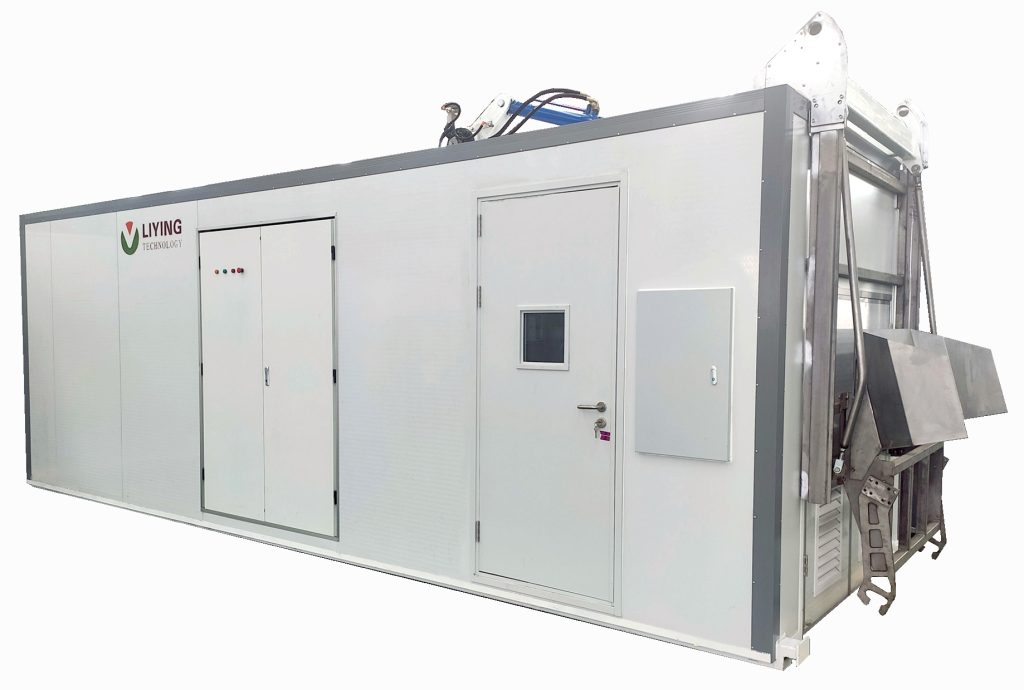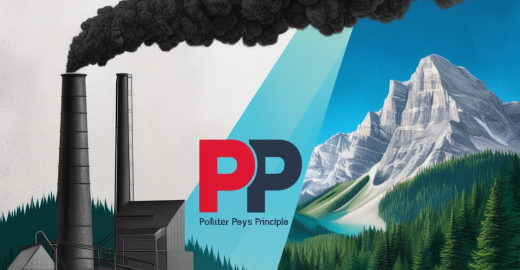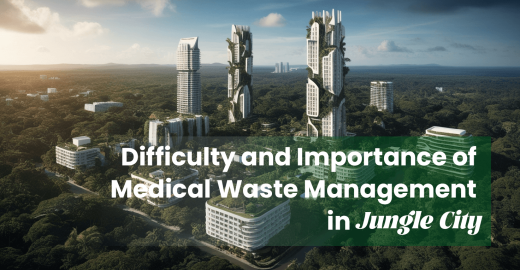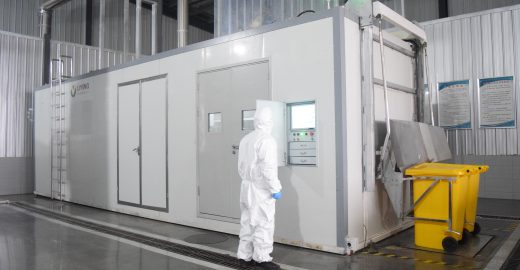Time:
In recent years, the growing interest in alternatives to medical waste incineration in the healthcare sector has become a focal point for the industry. With the promotion of sustainable development, healthcare organizations are exploring more environmentally friendly and efficient waste disposal methods to reduce the generation of hazardous waste and the threat it poses to both the environment and human beings. Unprocessed healthcare waste not only contributes to the environmental burden, but also carries the risk of spreading serious infections.
In this article, we will explore and demonstrate that sustainable healthcare waste management is not just reactive behavior, but also a strategic choice that healthcare organizations should proactively incorporate into their waste management systems.
Incineration is one of the mainstays of medical waste treatment today. However, it has many drawbacks, such as the generation of dioxins and other gases when burning plastic medical waste. A variety of alternatives have emerged and are gradually changing this situation. However, many healthcare organizations are forced to rely on incineration due to a lack of on-site processing equipment.
While high-temperature incineration is effective in destroying hazardous waste, WHO still advocates prioritizing more environmentally friendly alternatives, such as microwave sterilization.
While reducing waste generation is always a priority, having the right treatment equipment in place will enable healthcare organizations to manage waste in a more cost-effective manner in the long run, with significant savings in transportation costs.
Although on-site incinerators with flue gas cleaning are available, their high installation and operating costs and space requirements, as well as the requirement for a continuous and large supply of waste, remain important constraints to their widespread use.
Chemical treatment utilizes specific chemicals to neutralize and break down hazardous substances in medical waste to achieve effective degradation of pollutants. The treated waste can be further processed or safely landfilled. While the cost of chemicals may be high, their advantages in terms of resource recovery and quick and simple disposal should not be overlooked.
Advantage Highlights:
Autoclaving is a popular alternative to incineration that utilizes high-pressure steam to sterilize medical waste. The process effectively neutralizes pathogens and ensures safe disposal of contaminated materials. Autoclaving offers several advantages even when compared to other sustainable methods.
Advantage highlights:
Microwave sterilization, as an innovative medical waste treatment solution, combines the dual advantages of high efficiency and environmental protection. The high temperatures generated by microwaves rapidly sterilize the waste and ensure safe subsequent treatment or disposal.
Advantage highlights:
Combining microwave sterilization and shredding technology, LI-YING's MDU series of equipment revolutionizes medical waste treatment. The equipment combines sterilization and shredding in one unit, demonstrating multiple advantages.
Significant Advantages:

LI-YING's microwave sterilization equipment is one of the preferred solutions for medical waste treatment, with a product line that covers the needs of all types of medical institutions, large, medium and small. Our equipment is made of high quality stainless steel, which is durable and reliable, making it an ideal choice for long-term investment. In addition, fully automated operation with multiple safety features ensures ease of use and safety.
In short, alternatives to medical waste incineration not only help healthcare organizations to comply with environmental regulations, but also offer significant advantages in terms of cost control and operational efficiency, and LI-YING's MDU series of automated disposal equipment is a leader in this field, and we look forward to working with you to create a greener future for healthcare.
Click here to follow our video channel.

What is the Polluter Pays Principle The Polluter Pays Principle, abbreviated as PPP, means that the entities causing pollution should bear the costs of pollution…

Forests and wetlands are crucial components of the Earth’s ecosystems, serving multiple functions such as climate regulation, water purification, and biodiversity maintenance. With the acceleration…

Of course! LI-YING has extensive experience in the harmless treatment of medical waste, particularly with microwave technology. Our equipment is distributed globally, serving over 300…
PDF Request